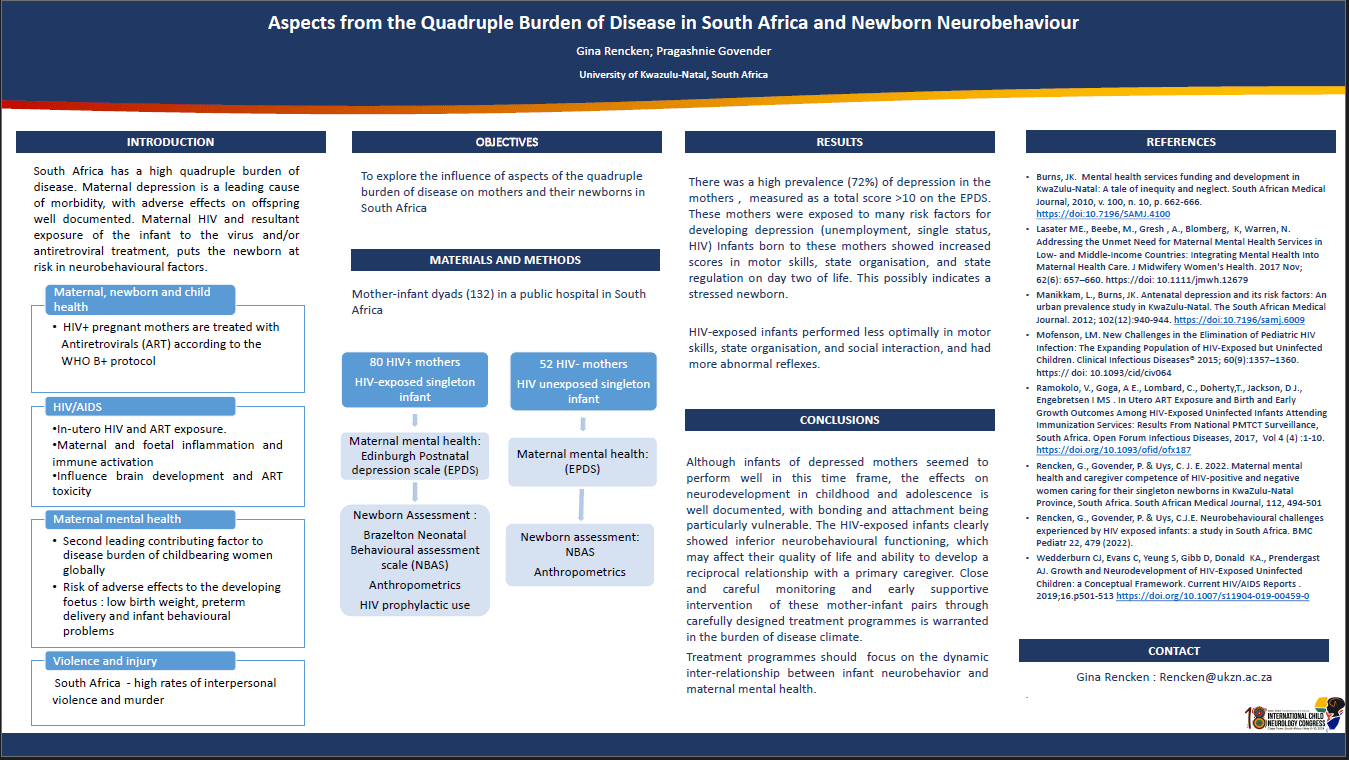Aspects From The Quadruple Burden Of Disease In South Africa And Newborn Neurobehaviour
South Africa has a high quadruple burden of disease, with HIV/AIDS , maternal and perinatal conditions contributing significantly to this. Maternal depression is a leading cause of morbidity, with adverse effects on offspring well documented. Maternal HIV and resultant exposure of the infant to the virus and/or antiretroviral treatment, puts the newborn at risk in neurobehavioural factors. A cross-sectional study was done with 132 mother-infant dyads in a public hospital, of which 80 were HIV-infected-exposed pairs. Maternal mental health was assessed using the Edinburgh Postnatal Depression Scale, and infant neurobehaviour was assessed with the Brazelton Neonatal Behavioural Assessment Scale on day 2 of life. All HIV-infected mothers were receiving Antiretrovirals according to the B+ protocol, and their infants were on prophylactic Nevirapine, or Nevirapine plus AZT. There was a high prevalence of depression in the mothers, regardless of HIV status. These infants showed increased scores in motor skills, state organisation, and state regulation on day 2 of life. HIV-exposed infants performed less optimally in motor skills, state organisation, and social interaction, and had more abnormal reflexes. Although infants of depressed mothers seemed to perform well in this time frame, the effects on neurodevelopment in childhood and adolescence is well documented, with bonding and attachment being particularly vulnerable. The HIV-exposed infants clearly showed inferior neurobehavioural functioning, which may affect their quality of life and ability to develop a reciprocal relationship with a primary caregiver. Close and careful monitoring of these mother-infant pairs is warranted in the burden of disease climate.
Gina Rencken
University of Kwazulu Natal
South Africa
Pragashnie Govender
University of Kwazulu Natal
South Africa

Gina Rencken
University of Kwazulu Natal
South Africa